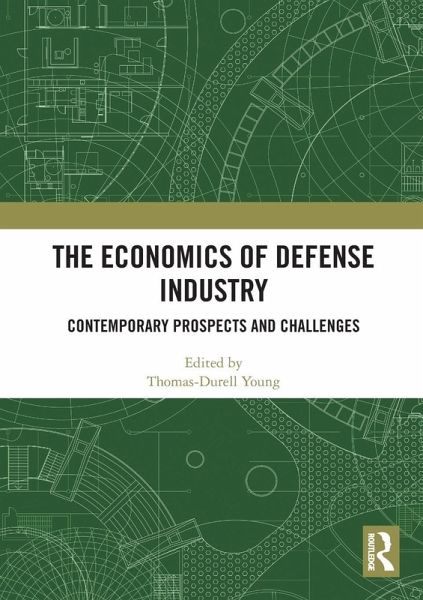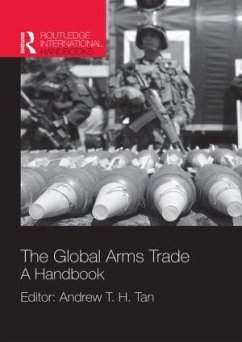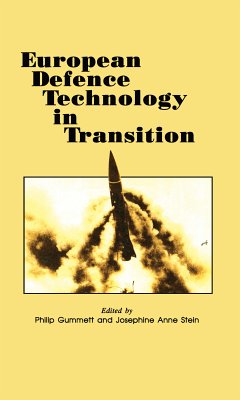
The Economics of Defense Industry
Contemporary Prospects and Challenges
Herausgegeben: Young, Thomas-Durell

PAYBACK Punkte
23 °P sammeln!
This book on the economics of defence industry assesses a series of historical and contemporary case studies that consistently demonstrate the need for governments to recognise, and thereafter factor, the financial needs of a narrow industrial sector that is capital intensive, technologically advanced and that requires a highly skilled labour force.Since the end of the cold war, Western governments have systematically reduced financial support to their domestic defence industry and have seemingly ignored planning and funding industrial mobilisation. In all cases, government policy has been to ...
This book on the economics of defence industry assesses a series of historical and contemporary case studies that consistently demonstrate the need for governments to recognise, and thereafter factor, the financial needs of a narrow industrial sector that is capital intensive, technologically advanced and that requires a highly skilled labour force.
Since the end of the cold war, Western governments have systematically reduced financial support to their domestic defence industry and have seemingly ignored planning and funding industrial mobilisation. In all cases, government policy has been to encourage industries to consolidate capacity to become financially viable in a sector that has seen diminished demand. The 2022 Russian invasion of Ukraine has caused Western governments to reassess their previous assumptions. Efforts to increase industrial capacity have been met with the iron laws of economics whereby businesses need to show return on investments. The chapters in this volume posit that efforts to rationalise industrial capacity and innovation to meet short-term financial efficiencies, inevitably results in limited, expensive, and long delays in increased production in times of international crisis.
This book serves as an essential guide for academics, researchers and students interested in defence economics, industrial economics, international relations, and industrial policy. The chapters in this book were originally published in various issues of Defense & Security Analysis.
Since the end of the cold war, Western governments have systematically reduced financial support to their domestic defence industry and have seemingly ignored planning and funding industrial mobilisation. In all cases, government policy has been to encourage industries to consolidate capacity to become financially viable in a sector that has seen diminished demand. The 2022 Russian invasion of Ukraine has caused Western governments to reassess their previous assumptions. Efforts to increase industrial capacity have been met with the iron laws of economics whereby businesses need to show return on investments. The chapters in this volume posit that efforts to rationalise industrial capacity and innovation to meet short-term financial efficiencies, inevitably results in limited, expensive, and long delays in increased production in times of international crisis.
This book serves as an essential guide for academics, researchers and students interested in defence economics, industrial economics, international relations, and industrial policy. The chapters in this book were originally published in various issues of Defense & Security Analysis.














